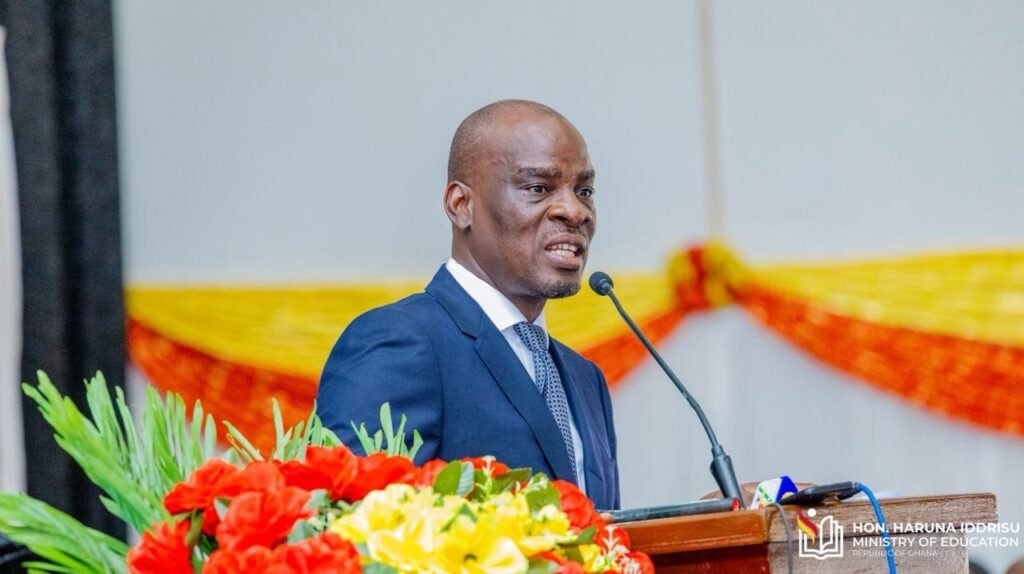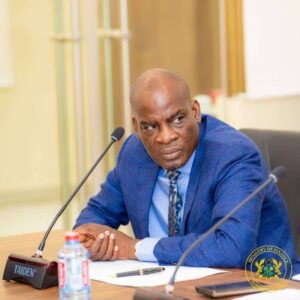Minister of Education, Haruna Iddrisu, has issued a directive to the Ghana Education Service (GES) mandating the immediate use of local languages as part of the medium of instruction in all basic schools nationwide. The directive, which takes effect immediately, is part of a broader policy shift aimed at improving learning outcomes by strengthening foundational literacy and promoting cultural identity through the active use of Ghanaian languages in education.
Speaking at a stakeholder engagement in Accra, the Education Minister emphasized that the decision aligns with Ghana’s National Language Policy, which encourages the use of mother tongues during the early stages of education. According to him, several studies conducted by UNESCO and local educational researchers have shown that children who begin learning in their native languages perform better academically than those taught exclusively in foreign languages.

Mr. Iddrisu noted that Ghana’s education system has, for too long, relied heavily on English as the main language of instruction, often to the detriment of pupils who struggle to grasp concepts at an early age. He explained that integrating local languages into the teaching process will make learning more relatable, participatory, and effective. “We cannot continue to deny our children the advantage of learning in the languages they speak and understand best. This reform is about giving Ghanaian children a fair start,” he stated.
Under the new directive, all public and private basic schools will be required to teach and communicate with pupils in at least one approved Ghanaian language, depending on the local linguistic context. The Ministry of Education, in collaboration with the GES, is expected to roll out a comprehensive implementation framework, including teacher re-training, curriculum adaptation, and the development of learning materials in selected local languages.
Officials at the GES have confirmed that preparations are already underway to update textbooks, recruit language experts, and support teachers with the necessary pedagogical tools to deliver lessons effectively in local languages. In addition, teacher training colleges will intensify the teaching of Ghanaian languages and oral pedagogy to equip educators with the required linguistic competence.

While the directive has received commendation from educational experts and cultural advocates, some stakeholders have raised concerns about its immediate feasibility. Critics argue that the lack of standardized materials, inadequate teacher training, and the linguistic diversity of Ghana, with over 80 languages spoken across the country, could pose challenges to smooth implementation.
In response, the Minister acknowledged the logistical hurdles but insisted that the benefits of the policy outweigh the challenges. He revealed that the ministry is working closely with linguistic institutions, including the Bureau of Ghana Languages and the Ghana Institute of Linguistics, Literacy and Bible Translation (GILLBT), to harmonize materials and select key languages for instruction in each region.
“Every region will have at least one Ghanaian language prioritized for instruction, based on the predominant spoken tongue,” Mr. Iddrisu clarified. “This is not about excluding English; rather, it’s about ensuring that children first understand what they learn before transitioning smoothly to bilingual proficiency.”
The directive also reaffirms Ghana’s commitment to the global Sustainable Development Goal (SDG) 4, ensuring inclusive and equitable quality education for all, and UNESCO’s advocacy for multilingual education. International education experts have long emphasized that mother-tongue-based instruction fosters cognitive development, boosts literacy rates, and strengthens cultural identity, especially in early childhood education.

Parent and teacher associations across the country have expressed cautious optimism. Some teachers have called for incentives and training to make the transition effective, while others have urged the government to provide adequate teaching aids and logistical support to avoid confusion in classrooms.
Education policy analysts note that similar initiatives in the past faced setbacks due to inconsistent implementation and limited resources. However, the current directive under Haruna Iddrisu’s leadership is being described as more pragmatic, with concrete institutional backing and a phased roll-out plan that addresses regional linguistic variations.
For many Ghanaians, the reintroduction of local languages in formal education marks a cultural renaissance, a return to valuing indigenous identity within a globalized education system. The Ministry is expected to publish an official implementation guide in the coming weeks, outlining the specific roles of district education offices, headteachers, and local education authorities.
As the directive takes effect, all eyes will be on how schools adapt to this shift and how it impacts early childhood education outcomes. If successful, the policy could reshape Ghana’s basic education model, setting a new standard for inclusive and culturally grounded learning in Africa.

